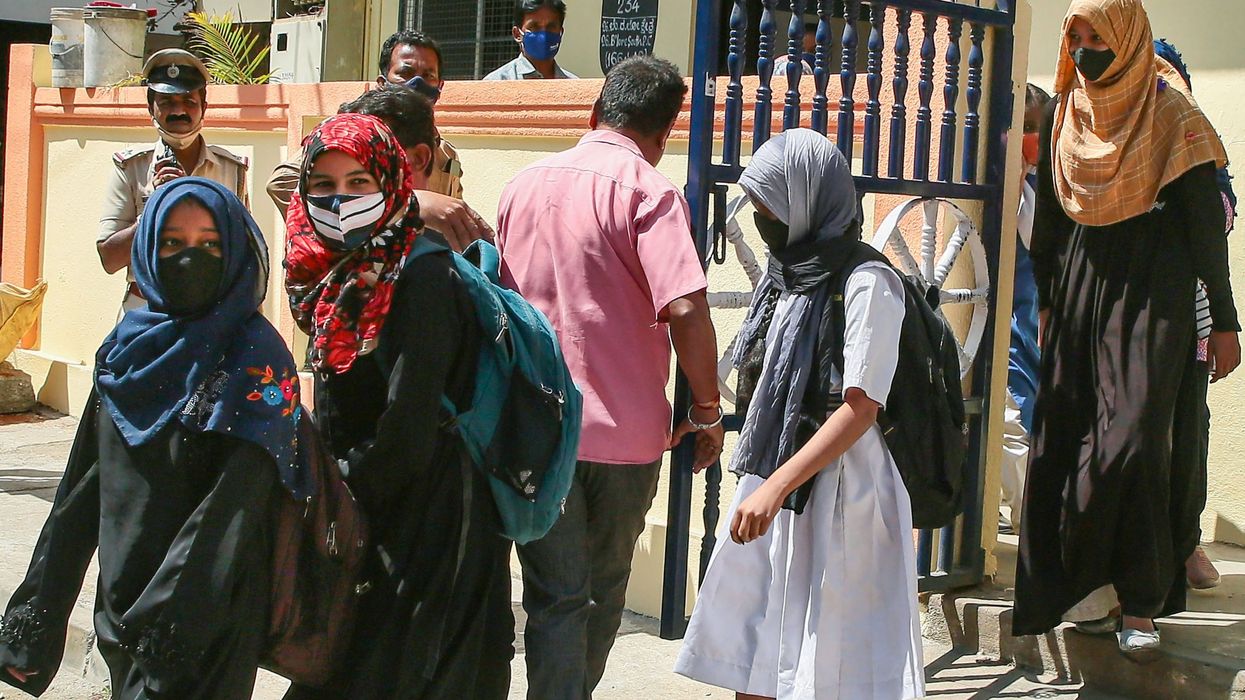A state in southern India re-opened some schools on Monday (14) that had been closed following protests last week over female students not being allowed to wear hijabs, or head-to-toe burqas, in class.
The issue, widely seen by India's Muslim minority community as a bid to sideline it by authorities in a Hindu-dominated nation, comes as prime minister Narendra Modi's Bharatiya Janata Party (BJP) prepares for elections in key states.
Police stood guard as students in pink uniforms, about a dozen wearing hijabs, entered a government girl's school where the issue first flared in Karnataka state's district of Udupi, about 400 km (248 miles) from the tech hub of Bengaluru.
Authorities have banned gatherings of more than five people within 200 metres (650 ft) of educational institutions in the area, which have begun classes from primary to high school, although higher grades and colleges are still shut.
The move came after a state court, which has set a hearing of the matter for Monday (14), told students not to wear any religious clothing, ranging from saffron shawls to scarves or hijabs, in classrooms until further orders.
"Whether wearing of hijab in the classroom is a part of essential religious practice of Islam in the light of constitutional guarantees needs a deeper examination," the court said in an interim order last week.
The issue was spotlighted following protests last week after some schools refused entry to students wearing the garments, deemed to have fallen foul of a Feb. 5 order on uniforms by the state, which is ruled by BJP.
Ayesha Imthiaz, a student in Udupi, said it was humiliating to be asked to take off the hijab before class.
She felt her "religion had been questioned and insulted by a place which I had considered as a temple of education," she told Reuters on the weekend.
An official in the coastal district of Udupi, Pradeep Kurudekar S, told reporters authorities would wait for further orders from the court or the government to resume all classes.
The issue prompted expressions of support for Muslim girls and women from the US government and Nobel Peace laureate Malala Yousafzai.
(Reuters)




